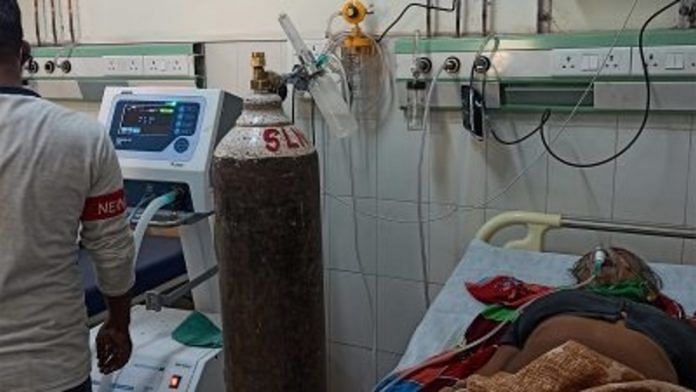New Delhi: In a unique initiative, the Narendra Modi government has started a crowdfunding programme for treatment of rare diseases.
Under the programme, corporates and individuals can donate online for the treatment of patients suffering from rare diseases whose treatment is long term and expensive. Eight designated hospitals, called centres of excellence, will accept the money for the treatment.
Donations on the government site can be made either to any of the tertiary care centres or for a particular patient. So far 30 patients have registered on the site that went online last week. Of these 25 are in “urgent need” of donations. A total of 26,502 donations have been received.
According to a senior health ministry official, the donations are not yet income tax exempt but the process for that is on.
“Each of the eight centres have a designated bank account for the crowdfunding money and the process is on for getting exemptions under Section 80-G for the donations. One may have obtained it already,” the official told ThePrint on condition of anonymity.
Also read: Delhi has again sent file to L-G asking for committee to probe oxygen-related deaths: Sisodia
The new policy
According to the recently notified National Rare Disease Policy 2021, “There is no universal or standard definition of rare disease. A disease that occurs infrequently is generally considered a rare disease, and it has been defined by different countries in terms of prevalence – either in absolute terms or in terms of prevalence per 10,000 population. A country defines a rare disease most appropriate in the context of its own population, health care system and resources”.
Eight centres of excellence have been currently authorised to receive donations under the programme.
These are: All India Institute of Medical Sciences, and Maulana Azad Medical College in New Delhi; Sanjay Gandhi Post Graduate Institute of Medical Sciences, Lucknow; Post Graduate Institute of Medical Education and Research, Chandigarh; the Centre for DNA Fingerprinting and Diagnostics at the Nizam Institute of Medical Sciences, Secunderabad; King Edward Memorial Hospital, Mumbai; Centre for Human Genetics with Indira Gandhi Hospital, Bengaluru; and the Institute of Postgraduate Medical Education and Research, Kolkata.
Three categories of rare diseases
The policy, according to the official quoted above, classifies rare diseases into three categories.
The first one is of diseases that need a one-time, usually expensive treatment. Treatment for these will be covered by the government under the Rashtriya Arogya Nidhi (RAN) that is a dedicated fund available with the Ministry of Health for funding treatment expenses of up to Rs 15 lakh for people belonging to BPL (below poverty line) categories.
However, for rare diseases such as Lysosomal Storage Disorders (LSDs) or for immune deficiency disorders that are classified as rare, treatment will be funded from RAN up to Rs 20 lakh for BPL categories, and for all those who are registered as beneficiaries of the Pradhan Mantri Jan Arogya Yojana, the tertiary care arm of the Centre’s flagship health programme Ayushman Bharat.
For the second category of diseases such as Phenylketonuria, Maple Syrup Urine Disease etc that need lifelong treatment/supplements but don’t require extensive financial support, state governments have been asked to support the treatment.
“Health after all is a state subject that is why this decision has been taken. However, for the third category of diseases where expensive medications running into crores are required often for a lifetime, we have decided to ask for public donations,” the official said.
Transparent system
An earlier model of the government accepting private funds to undertake and support relief or assistance of any kind relating to a public health emergency or any other kind of emergency, PM-CARES, ran into political opposition for much of the time that it has been in existence since the beginning of the Covid-19 pandemic.
However, the official claimed that the rare diseases initiative has nothing to hide.
“This is a completely transparent system where people can choose which centre of excellence to donate to and also whose treatment to support. Many of these patients, about 75 per cent of them, are children. Donations are online, we accept credit cards, Paytm, anything… and the money goes directly to one of the eight accounts set up for the purpose,” the official said.
It is not possible, the official added, for the government to fund these treatments because of the need to ensure that government money is spent for the greater good rather than to benefit individuals.
“If we spend a few crores on the treatment of one person when several thousand could have been immunised for the same money, that is not optimum usage of government money. That is why this initiative,” he explained.
Also read: Why the world may never reach herd immunity against Covid-19



